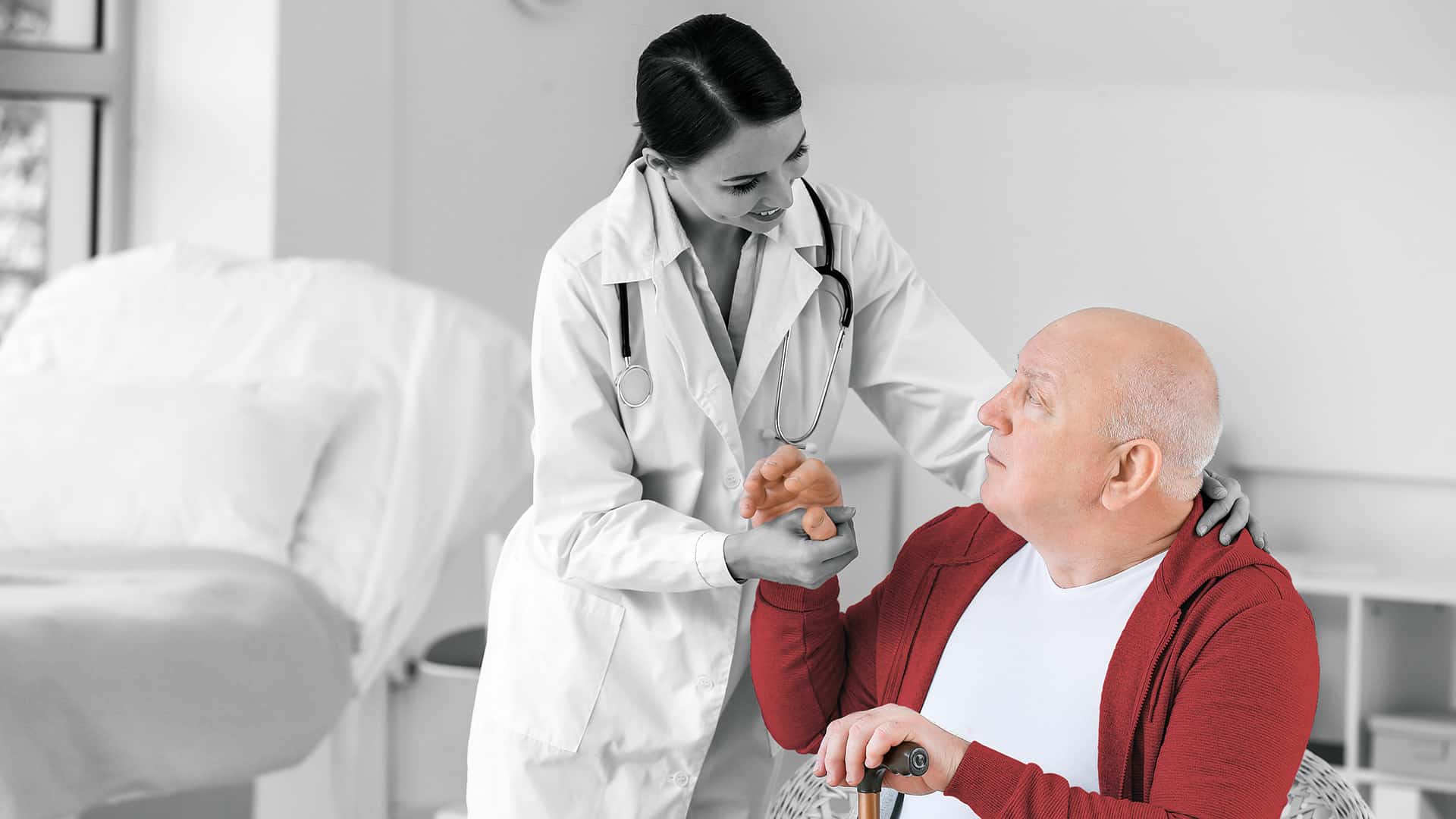Parkinson’s is a whole-body condition, and the gut is one of its earliest and most affected systems. Issues like constipation, bloating, nausea, swallowing difficulties, and delayed stomach emptying can appear long before motor symptoms and may worsen over time.
Potentially even more important, increasing research shows that PD may even start in the gut before spreading to the brain via the vagus nerve. This “gut–brain axis” connection means your gastroenterologist plays a crucial role in both comfort and disease management.
Here’s what you should know about how gastroenterologists fit into your Parkinson’s care team, and how to make the most of that relationship.
Your Gastroenterologist’s Roles and Responsibilities in Caring for Your Parkinson’s
Gastroenterologists aren’t just “gut doctors.” Their work addresses a complex mix of neurology, motility, and nutrition. It focuses on relieving symptoms, preserving nutrition, and helping your PD medications work as intended.
Some things they may do include:
- Diagnosing GI motility disorders using gastric emptying studies, colonic transit studies, and swallowing evaluations.
- Treat constipation with fiber/fluid strategies, osmotic laxatives (like PEG), or prescription agents like lubiprostone or linaclotide.
- Manage gastroparesis with prokinetic medications (where available), diet modifications, and meal timing adjustments.
- Address small intestinal bacterial overgrowth (SIBO) with targeted antibiotics such as rifaximin.
- Coordinate with your neurologist to improve levodopa absorption by aligning medication and meal timing or using dispersible formulations.
- Ensure safe swallowing and nutrition, sometimes recommending PEG feeding if oral intake is unsafe.
How Often Can You Expect to See Your Gastroenterologist?
Early Stage (Mild or No GI Symptoms)
Frequency. Every 12–18 months or as new symptoms arise.
Goal – Identify early motility changes, optimize bowel habits, and protect medication absorption.
Mid-Stage (Persistent GI Issues)
Frequency. Every 3–6 months.
Goal – Actively manage constipation, gastroparesis, bloating, and SIBO to reduce discomfort and prevent malnutrition.
Late Stage (Severe GI Complications)
Frequency. Every 1–3 months or as needed for symptom changes.
Goal – Maintain safe feeding, manage severe constipation or incontinence, and reduce aspiration risk.
Post-Hospitalization or Major GI Event
Frequency. Short-term intensive follow-ups that will depend on the specifics of your situation.
Goal – Restore baseline function and nutrition after illness or surgery.
What Should You Expect from a Typical Gastroenterology Visit?
Baseline Review
- Symptom check – bowel habits, nausea, bloating, swallowing changes.
- Review of medication timing and possible absorption problems.
Physical Exam
- Abdominal assessment for distension, tenderness, or motility issues.
- Diagnostic Testing (as needed)
- Gastric emptying study for suspected gastroparesis.
- Breath tests for SIBO.
- Esophageal manometry or swallow studies for dysphagia.
Treatment Plan
- Diet and lifestyle strategies.
- Medication adjustments for both GI and PD symptom control.
- Coordination with other specialists, including your neurologist, dietitian, and speech-language pathologist.
What Are Some Questions Related to Parkinson’s Care That You Should Ask Your Gastroenterologist?
- Could my GI symptoms be affecting my Parkinson’s medication?
- What’s the best way to manage constipation without relying solely on laxatives?
- How can I time meals and medication for the best symptom control?
- Could I have gastroparesis or SIBO, and how are they diagnosed?
- How can I reduce my aspiration risk when swallowing?
- What nutritional strategies can help me maintain weight and energy?
The Bottom Line
As weird as it may seem, where Parkinson’s is concerned, gut health is brain health.
GI symptoms are part of the disease process – not just uncomfortable side effects – and they can dramatically impact the effectiveness of your medication, nutrition, and your overall quality of life.
A gastroenterologist brings essential expertise to your care team, addressing symptoms, preventing complications, and coordinating closely with your neurologist. Regular monitoring, early intervention, and a whole-person approach can help you stay healthier, more comfortable, and more independent for longer.




